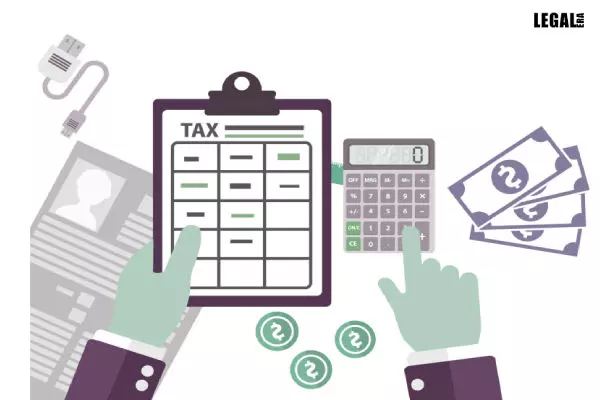- Home
- News
- Articles+
- Aerospace
- Agriculture
- Alternate Dispute Resolution
- Banking and Finance
- Bankruptcy
- Book Review
- Bribery & Corruption
- Commercial Litigation
- Competition Law
- Conference Reports
- Consumer Products
- Contract
- Corporate Governance
- Corporate Law
- Covid-19
- Cryptocurrency
- Cybersecurity
- Data Protection
- Defence
- Digital Economy
- E-commerce
- Employment Law
- Energy and Natural Resources
- Entertainment and Sports Law
- Environmental Law
- FDI
- Food and Beverage
- Health Care
- IBC Diaries
- Insurance Law
- Intellectual Property
- International Law
- Know the Law
- Labour Laws
- Litigation
- Litigation Funding
- Manufacturing
- Mergers & Acquisitions
- NFTs
- Privacy
- Private Equity
- Project Finance
- Real Estate
- Risk and Compliance
- Technology Media and Telecom
- Tributes
- Zoom In
- Take On Board
- In Focus
- Law & Policy and Regulation
- IP & Tech Era
- Viewpoint
- Arbitration & Mediation
- Tax
- Student Corner
- AI
- ESG
- Gaming
- Inclusion & Diversity
- Law Firms
- In-House
- Rankings
- E-Magazine
- Legal Era TV
- Events
- News
- Articles
- Aerospace
- Agriculture
- Alternate Dispute Resolution
- Banking and Finance
- Bankruptcy
- Book Review
- Bribery & Corruption
- Commercial Litigation
- Competition Law
- Conference Reports
- Consumer Products
- Contract
- Corporate Governance
- Corporate Law
- Covid-19
- Cryptocurrency
- Cybersecurity
- Data Protection
- Defence
- Digital Economy
- E-commerce
- Employment Law
- Energy and Natural Resources
- Entertainment and Sports Law
- Environmental Law
- FDI
- Food and Beverage
- Health Care
- IBC Diaries
- Insurance Law
- Intellectual Property
- International Law
- Know the Law
- Labour Laws
- Litigation
- Litigation Funding
- Manufacturing
- Mergers & Acquisitions
- NFTs
- Privacy
- Private Equity
- Project Finance
- Real Estate
- Risk and Compliance
- Technology Media and Telecom
- Tributes
- Zoom In
- Take On Board
- In Focus
- Law & Policy and Regulation
- IP & Tech Era
- Viewpoint
- Arbitration & Mediation
- Tax
- Student Corner
- AI
- ESG
- Gaming
- Inclusion & Diversity
- Law Firms
- In-House
- Rankings
- E-Magazine
- Legal Era TV
- Events
ITAT endorses appeal dismissal filed after a long pause

ITAT endorses appeal dismissal filed after a long pause
The tribunal refused to sympathize with the assessee
The Bangalore Branch of the Income Tax Appellate Tribunal (ITAT) has upheld the order of the appellate authority wherein the appeal filed by the assessee was rejected on the reason of being filed after nearly two years.
The tribunal chided that the law assisted those who were vigilant and not those who slept over their rights for a long time. ITAT said that the assessee took over 700 days in petitioning before the Commissioner of Income Tax (Appeals) CIT(A).
However, the assessee explained that the reason for the delay was inadvertent, as he had filed the appeals against the orders passed under the Income Tax Act before ITAT. Thereafter, ITAT dismissed the appeal stating that it was to be filed to the CIT(A).
The bench comprising Judicial Member George George K and Accountant Member Padmavathy S said that the assessee had not explained the delay in filing the appeal before the CIT(A) after ITAT's order.
"In this context, it is relevant to note that ITAT passed the order on 27.07.2018 and the appeals were instituted before the CIT(A) only on 09.05.2019, nearly 10 months from the date of receipt of the order of the ITAT," the tribunal said.
Overruling the arguments of the assessee, the tribunal held, "The delay cannot be condoned simply because the assessee's case is hard and calls for sympathy or merely out of benevolence to the party seeking relief in granting the indulgence and to the party seeking relief. In granting the indulgence and condoning the delay, it must be proved beyond the shadow of a doubt that the assessee was diligent and was not guilty of negligence."
"The sufficient cause within the contemplation of the limitation provision must be a cause which is beyond the control of the party invoking the aid of the provisions. The cause for the delay in filing the appeal, which by due care and attention, could have been avoided, cannot be a sufficient cause within the meaning of the limitation provision. Where no negligence, inaction, or want of bona fides can be imputed to the assessee, liberal construction of the provisions has to be made in order to advance substantial justice. Seekers of justice must come with clean hands," the bench added.




